How Nikki Haley defied all expectations – except one
DES MOINES, Iowa – Last summer Nikki Haley arrived at the Iowa State Fair sporting jeans and a navy T-shirt with a cautionary message in all caps for the men she was competing against for president.
“UNDERESTIMATE ME ? THAT'LL BE FUN,” the shirt said.
But in mid-August, she was in the middle of a 13-person primary field, her support stagnant at 4% nationally. She was struggling to break out of the pack.
Then Haley surged ahead of her competitors at the first GOP debate later that month. She emerged as the last rival standing against former President Donald Trump.
Her exit marks the beginning of what is expected to be the longest and most expensive general election in history.
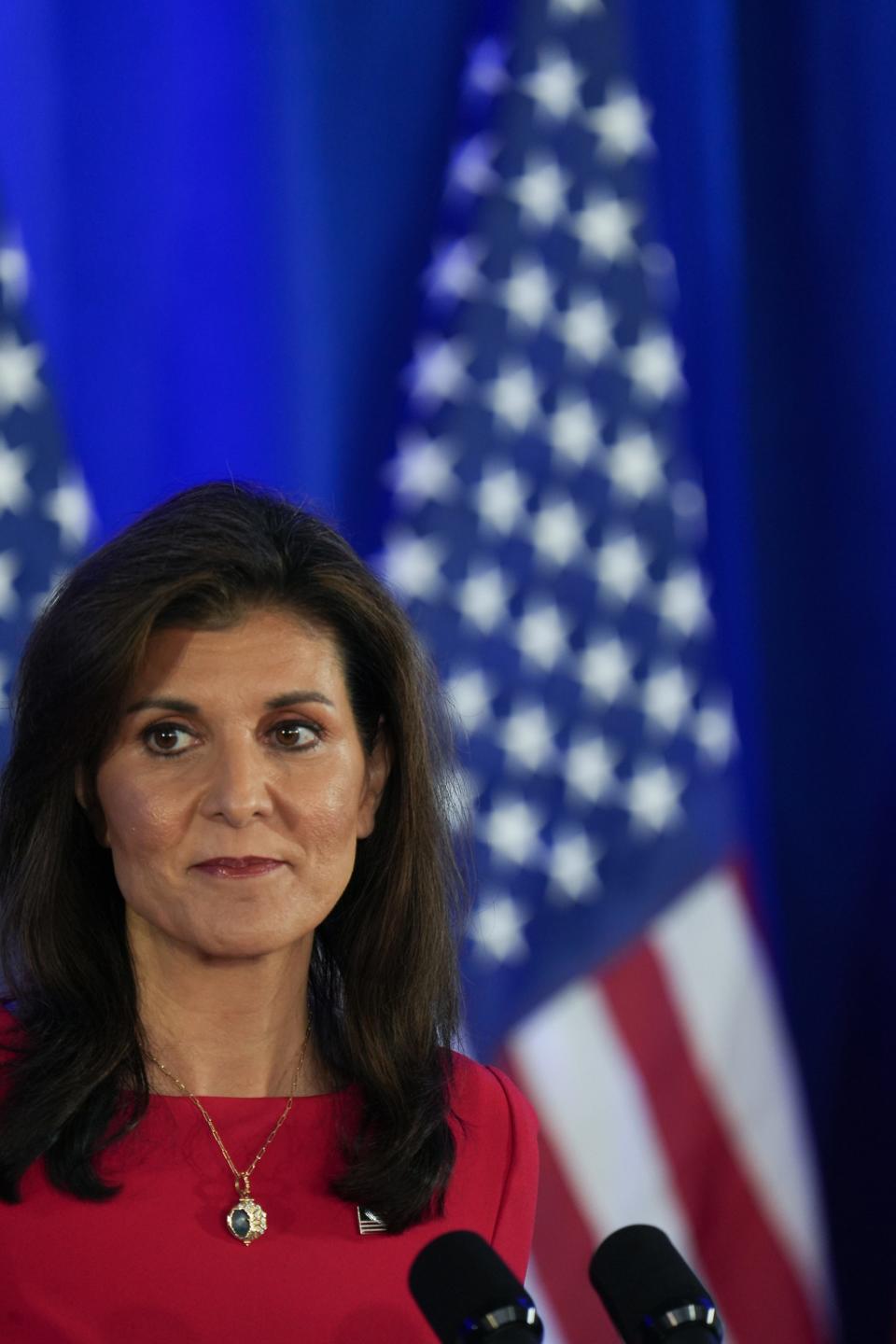
More: Nikki Haley drops out: Former S.C. governor ends her 2024 campaign
Haley was the first challenger to enter the race against Trump, and the lead time paid off. She raised more than $80 million, establishing herself as a fundraising juggernaut.
The strong cash flow helped her stay in the race longer than any other primary candidate.
Through subzero temperatures and snow storms, Haley fought her way across early primary states to cobble together a coalition of voters who yearned to unseat Trump as the party’s standard-bearer. When subtle references to the chaos around him didn’t work, she went further, comparing him to a child throwing temper tantrums and a befuddled, elderly narcissist.
Haley had never lost an election, so this was new for her. Trump insulted her husband, a major in the South Carolina National Guard deployed overseas and attacked her with racist and sexist nicknames. But she reasoned that it wasn’t too late for GOP voters to change course and nominate someone who wasn’t under indictment.
They didn’t want to.
Trump has all but secured his party’s nomination for a third time, but not before Haley racked up more than 2 million votes and 89 delegates across 26 states and territories.
More: Nikki Haley walks back pledge to support Donald Trump if he's the GOP nominee
Haley said Wednesday that she’s proud of the campaign she ran, even though she lost all but one of the Super Tuesday contests to Trump. She told USA TODAY during a media roundtable on Friday that she credits discipline, hard work and financial restraint for making it as far as she did.
“I don't know that I have regrets,” she said. “I have always gone through this as just gratitude, just very grateful for … getting where we have and continuing to get people inspired.”
Haley's breakout debate
The turning point for Haley’s campaign came during the first primary debate in late August.
For two minutes straight, she railed against Vivek Ramaswamy for arguing that the U.S. should cut a deal with Russia and allow it to keep areas of Ukraine it illegally seized to end the war.
As Ramaswamy responded, Haley furiously shook her head and pointed a finger at him. “You have no foreign policy experience, and it shows,” she interjected.
The audience in the Milwaukee arena exploded into raucous applause, nearly drowning out the loquacious biotech entrepreneur.
Susan Page: A rematch nobody wanted: But some big differences define Biden vs. Trump in 2024
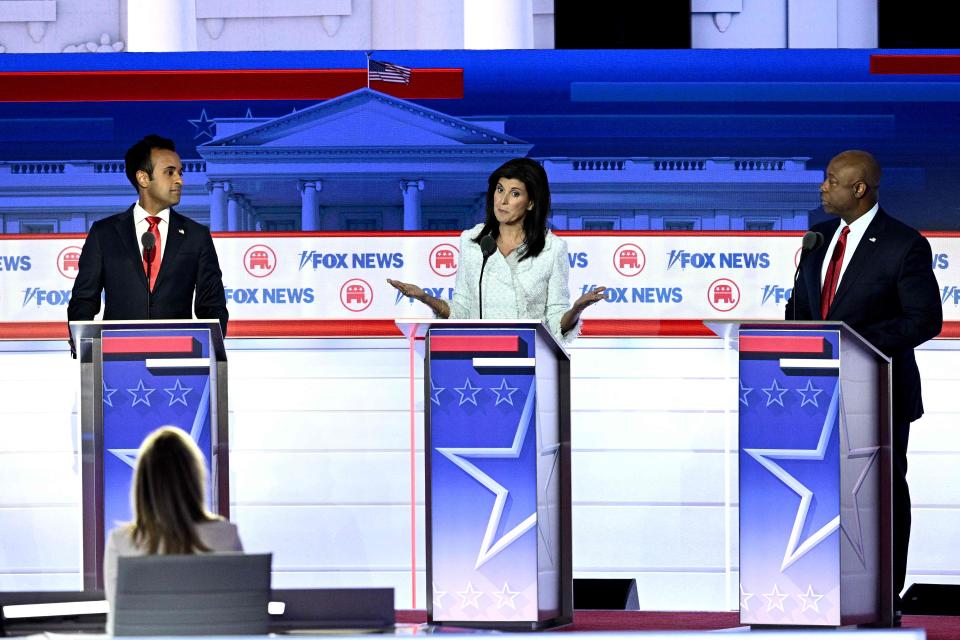
Watching the former South Carolina governor spar with her competitors, particularly as the only woman in the race, drew 22-year-old Caitlin Kennedy-Jensen of Maine to Haley’s candidacy.
“I just thought that she brought a level of maturity to the debate that was lacking. All of the men were kind of taking cheap shots,” said Kennedy-Jensen, a self-described conservative who studies political science at Holy Cross College. “She did a better job of rising above.”
Haley soon jumped to second place behind Trump in New Hampshire.
Her momentum, combined with rising donor and polling thresholds set by the party to participate in the televised matches, knocked her competitors out one by one. Former Texas congressman Will Hurd, former Vice President Mike Pence, South Carolina Sen. Tim Scott and North Dakota Gov. Doug Burgum all quit within weeks.
“She stood tall and firm and was willing to engage and not take any guff off the guys. That propelled her,” said Haley’s former presidential competitor Asa Hutchinson.
More: Super Tuesday recap: Trump, Biden pick up big wins; Haley drops out
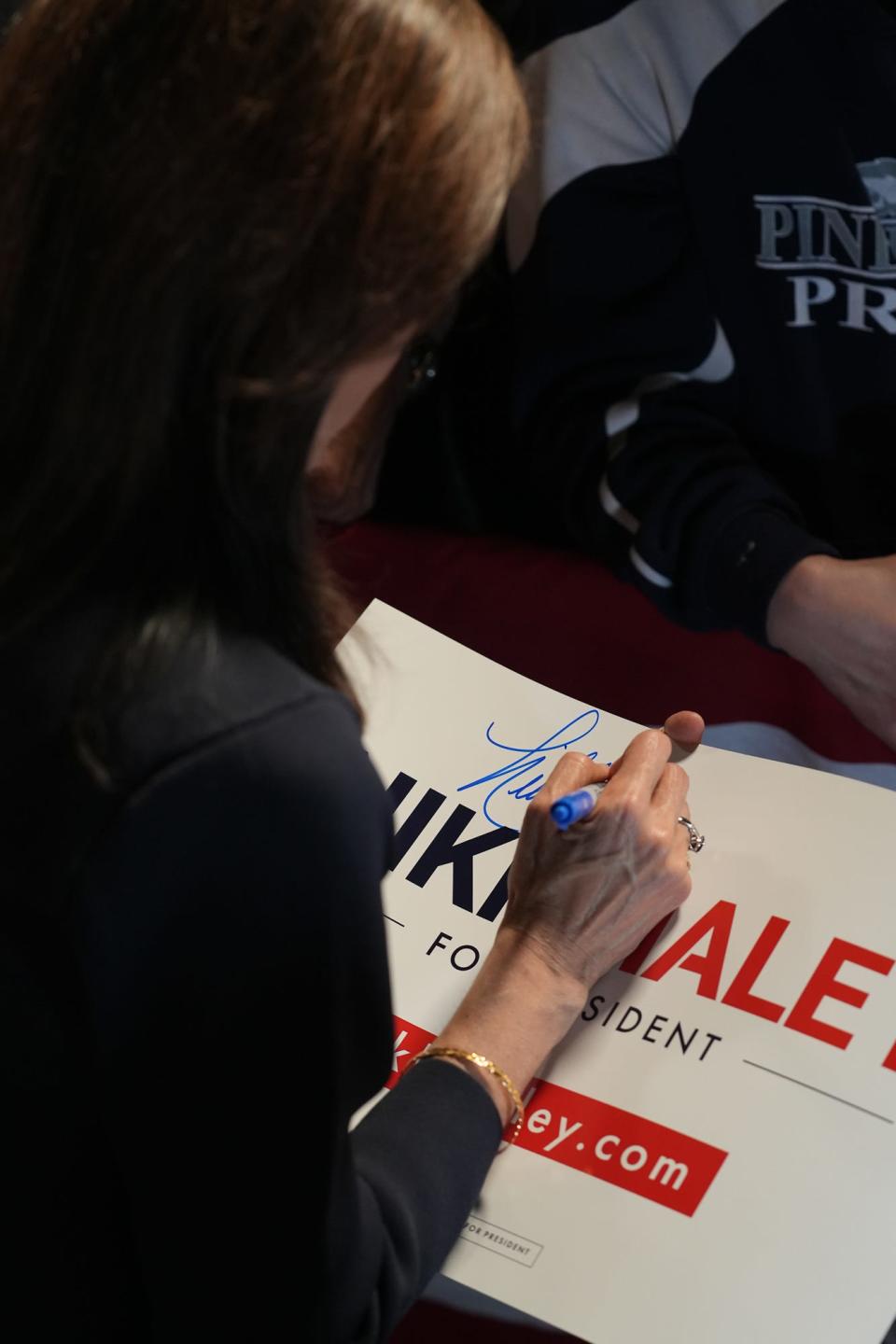
The two-term governor of Arkansas who left office last year said Haley’s performance in the first and second debates reshuffled the race.
“In Iowa, all the votes that were not Trump’s shifted to her, including my own votes because they saw her having momentum and doing well in New Hampshire,” he reflected.
Anti-Trump rivals call it quits
It was early January.
Former New Jersey Gov. Chris Christie stood in the middle of a chapel in Windham, New Hampshire, with approximately 100 of his most passionate supporters huddled in rapt silence. Tears streamed down many of their faces as Christie solemnly explained that he was suspending his campaign.
Christie had bet his presidential ambitions on winning New Hampshire. The state’s popular Republican governor, Chris Sununu, decided to back Haley instead.
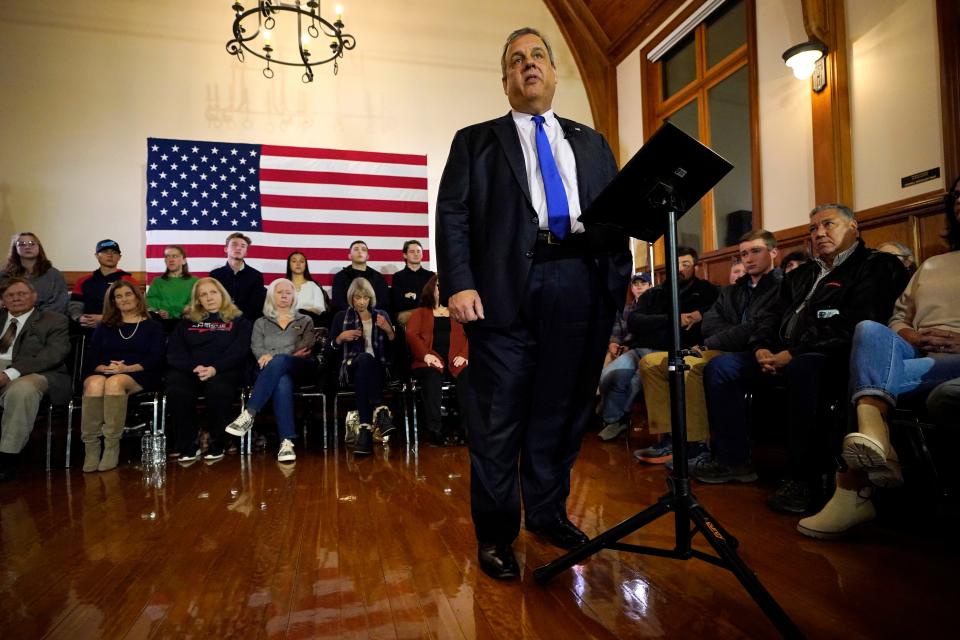
A furious Christie was caught on a hot mic saying Haley could not beat the front-runner.
“She’s going to get smoked – you and I both know it. She’s not up to this,” he said backstage.
As Christie exited the race, he charged that none of the remaining candidates were going hard enough against Trump. The former president was facing 91 criminal counts in four different cases and has been accused of trying to overturn the results of the last presidential election.
Christie refused to endorse Haley or DeSantis, whose strategy to put Trump on the ropes by beating him in Iowa was faltering.
Opinion: Nikki Haley and her voters still have a chance to be heroes. They need to vote for Biden.
DeSantis’ plans to woo legions of evangelicals and conservatives fed up with Trump to the caucuses had taken a hit several weeks before when the Koch-funded activist group Americans for Prosperity Action intervened to endorse Haley.
The candidate who had been running a lean campaign with few on-the-ground staff and no real grassroots operation suddenly had an army of supporters canvassing the state and a massive war chest.
When the Iowa caucuses arrived on Jan. 15, Haley was neck-and-neck with DeSantis in Iowa, even as Trump maintained a strong lead. She closed the gap with DeSantis to three points, exceeding expectations as he was left to explain how his campaign squandered nearly $100 million.
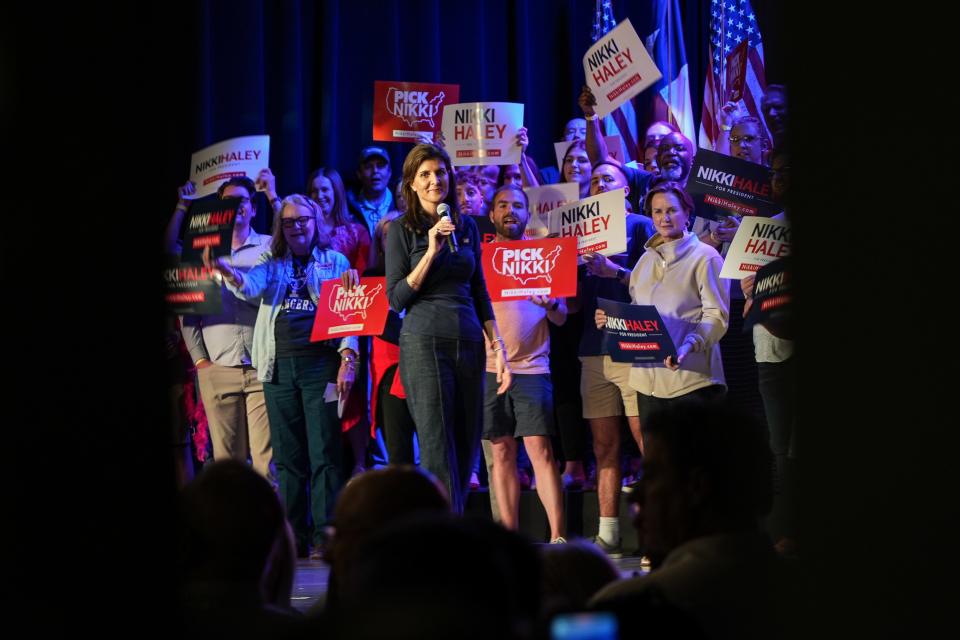
Donations to Haley’s campaign surged. She collected more than $16 million in contributions in January, according to her campaign. Her Super PAC, SFA FUND Inc., raked in roughly $12 million.
"For a long time, I think people were waiting to see who was it going to be – DeSantis or us. Or much earlier, was it Tim Scott," said Mark Harris, lead strategist for SFA. "As it became clear to people, I think, that we were likely to be the finalist in the against Trump camp category – that's really when we saw that big increase in support."
And then there were none
The Iowa caucus stopped low-polling candidates in their tracks. Hutchinson and Ramaswamy immediately dropped out.
DeSantis briefly sought higher ground in Haley’s home state of South Carolina before acknowledging in a video that most rank-and-file Republicans were not ready to abandon Trump.
His exit paved the way for Haley to go head-to-head with the ex-president. With just days until the New Hampshire primary, she brought in the big guns – Sununu and his cherry red Mustang convertible. Together, they raced to shore up support among the state’s throngs of independent voters.
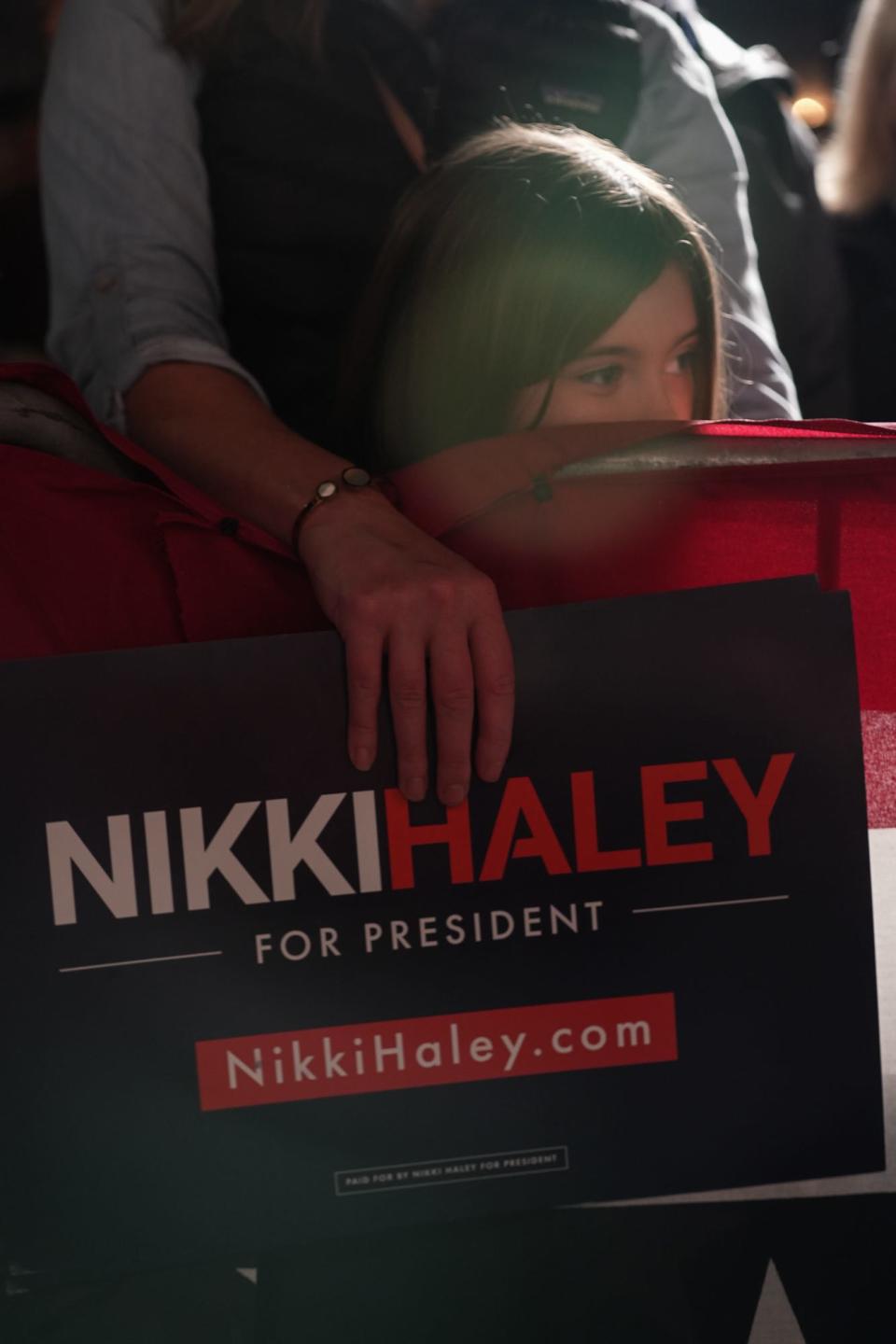
“If you told me back in October, November, I was gonna get behind a candidate and that candidate was gonna knock everyone out of the race – I’d be like that's crazy,” Sununu said. “She did it. She did what nobody thought was possible. How can you have any regrets on that?”
Haley came within 11 points of Trump in the state – far closer than the 22% defeat that some polls had shown. She consolidated some of the roughly 12% of anti-Trump and undeclared primary voters who had been supporting Christie.
The defeat was still too large to end Trump’s dominance. She spent the next three weeks raising cash and drumming up support for the late-February primary in South Carolina, where Trump was ahead by more than 30 points, only to lose to the former president once again.
Trump beat Haley 60%-40% in her home state. And in a series of contests immediately after, the only two victories Haley managed to score were in Washington, D.C., where just 2,000 people voted in the GOP primary and Vermont. Her wins nonetheless made history.
“The fact that all of the other guys dropped out of the race and left her alone, and she's the first woman to now win a Republican primary is gigantic,” said Jennifer Nassour, Haley’s Massachusetts campaign chair. “As a mom of two girls like that is just a cool historical point during Women's History Month."
More: Nikki Haley's 2024 presidential campaign may be over, but it still made history. Here's how.
Haley's fatal flaw
Haley and her top backers see little else she could have done to change the outcome. She had strong debate performances and raised large sums of cash. To the end, Trump refused to debate her face-to-face.
“It’s a Trump world. That’s what everyone is for. The Republicans are for Trump,” said Cathy Hartman, 66, a registered nurse from Fort Worth, Texas.
She came into the race a Trump supporter. But after listening to Haley, she changed her mind. Haley’s foreign policy experience, her ability to serve eight years if elected and her appeal to moderates and independents were selling points.
A key moment that may have made a significant difference for Haley was when candidates were asked if they would support Trump as the Republican Party’s nominee if he was convicted of a felony. Every candidate on stage except Christie and Hutchinson raised their hands.
“I think that was a mistake,” Hutchinson said.
He argued that Haley could have brought more anti-Trump voters into her camp. “Chris Christie might not have gotten into the race,” he said. “He would not have gotten the momentum that he had if she had been stronger from the very beginning against Trump.”
Haley disagreed with the view that attacking Trump earlier would have helped. She told reporters it would have led to the same downward spiral other Trump antagonists faced.
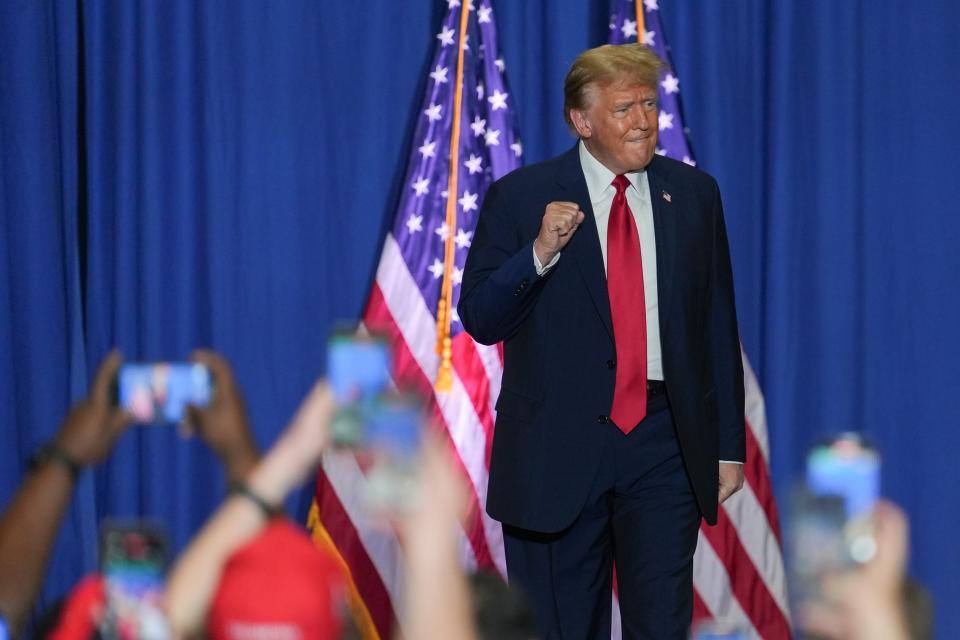
“If I had done that in the beginning, I would have been a Chris Christie,” Haley said during the press roundtable in Washington, D.C., last week.
Haley could not have known that so many Republicans would stick with Trump and that his support would harden every time he was indicted, her allies argue.
"There is very little question that the Republican Party is now the Trump party,” Rob Godfrey, Haley’s former deputy chief of staff during her time as governor who has remained neutral during the 2024 campaign, insisted.
Haley pointedly did not endorse Trump after she dropped out and instead used her concession speech to encourage the former president to build unity in the Republican Party.
“It is now up to Donald Trump to earn the votes of those in our party and beyond it who did not support him. I hope he does." Haley said. "This is now his time for choosing."
This article originally appeared on USA TODAY: Nikki Haley defied all expectations – except one
